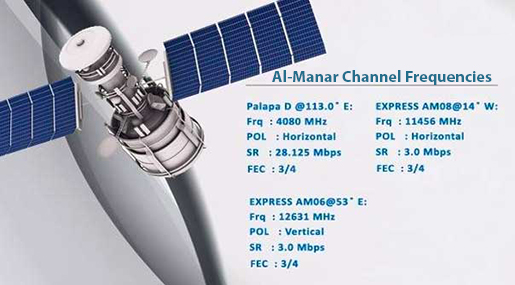
Nilesat’s Decision Regarding Al-Manar... An Upholding to External Pressures, Greig Distancing Himself

Local Editor
Lebanon has been swarmed in reactions regarding the administration of the Egyptian Nilesat satellite's sudden decision to ban al-Manar TV channel from broadcasting - a move that cannot be separated from the context of the Saudi war against the resistance in Lebanon and the opposition against its barbaric project which is seeking to control the region in various ways.

Amidst this unjust decision against the Arab and Muslims' channel, which is a flagrant violation of the freedom of opinion and expression, Lebanese Information Minister Ramzi Greig preferred to distance himself by claiming that the dispute between the Nilesat's department and al-Manar channel is a contractual issue that has nothing to do with the Ministry of Information.
In an interview with al-Ahed news, Greig pointed out that al-Manar is a licensed channel in Lebanon and broadcasts via its license confirming that it did not adopt the seditious approach. He further added that in the case al-Manar committed any offense, it can be held accountable through the National Media Council stressing that Nilesat management is not concerned with monitoring the performance of the media in Lebanon.
Greig believes that the solution to this issue is either consensual or between the parties of the dispute before proficient court. However, he neglected to mention the duty of the Lebanese state to protect media freedom and prevent infringements on media institutions in all its forms.
Mahfouz: Satellites provide broadcasting service exclusively and does not monitor media performance
For his part, Chief of the National Council for Visual and Audio Media, Abdul Hadi Mahfouz expressed outrage at Egypt's resort to ban al-Manar's airing especially as it stands out given its political position about recent developments. He further said that the Nilesat's decision had been expected since Arabsat's ban of broadcasting al-Manar saying that both satellites commit themselves to a "police document" issued by the Arab League in 2008, which gives them the right to block any channel in case of a complaint from any Arab country.
In his interview with al-Ahed News, Mahfouz said that that the Egyptian decision is not surprising, especially in the presence of Egyptian President Abdel Fattah al-Sisi and at a time that the Egyptian authorities tend toward the adoption of a modern and open-minded media law that guarantees freedom of expression.
Mahfouz stressed that the satellites' role is to provide broadcasting service exclusively and not to monitor media performance which is subject to the control of the Lebanese authority calling the later to take steps to protect the audio-visual media.
Farhat: When the Lebanese government is unable to protect freedoms, it can at least be take a stance
For his part, Al-Manar channel's general manager, Ibrahim Farhat confirmed that the decision to ban the channel from airing on Nilesat comes within the context of pressure exerted on the satellite's administration in the wake of the recent Arab foreign ministers' conference a few weeks ago.
Farhat said that the Egyptians were taking this step slowly before returning to apply it; however, what is rumored about al-Manar's violations and perpetrations are of no value in the media world today.
Regarding the criticisms that are affecting the Lebanese official position on this issue, Farhat said that when the Lebanese government is a "minimum limit" state, and when they are not responsible for any essentials in broadcasting, then how will it be responsible for the protection of media freedoms?
Al-Manar's general manager considered that there is a great responsibility that lies upon the government in this regard, because Lebanon is the home to freedom; and when the Lebanese state is unable to protect freedoms, it can at least take a stance.
Al-Manar channel has described "the Nilesat administration's decision to stop the broadcast on its satellite as an unjust political decision which is not based on any legal and professional justification, saying it came in response to an ongoing political pressure of a known source taking into consideration the initial stances of the channel to convey the causes of our Arab and Islamic nation with the Palestinian cause and the cause of the resistance against the "Israeli" occupation and Takfirism which affects the Arab and Muslim countries as its vanguard."
The channel further noted that "Nilesat management's market for flimsy excuses regarding al-Manar's policy and the allegations that it is promoting sedition would not deceive one; everyone knows that al-Manar is the channel of unity and resistance, while there are dozens of other channels on Nilesat and other satellites that promote sedition, Takfirism and sectarian conflicts."
It pointed out that "Nilesat's decision confirms that we are in an era where there is no place for the voice and the image of the resistance in the Arab satellites,; but everyone knows that is no July war, pre-July war or post-July war that is able to change our position, silence the voice of al-Manar, or obscures its image in the hearts of millions of Arabs and Muslims... that is our pride."
Al-Manar called the "Nilesat administration to reverse its wrong and unjust decision to serve the causes of the nation, its peoples and its supreme interests."
Source: al-Ahed News, Translated and Edited by website team
Comments



